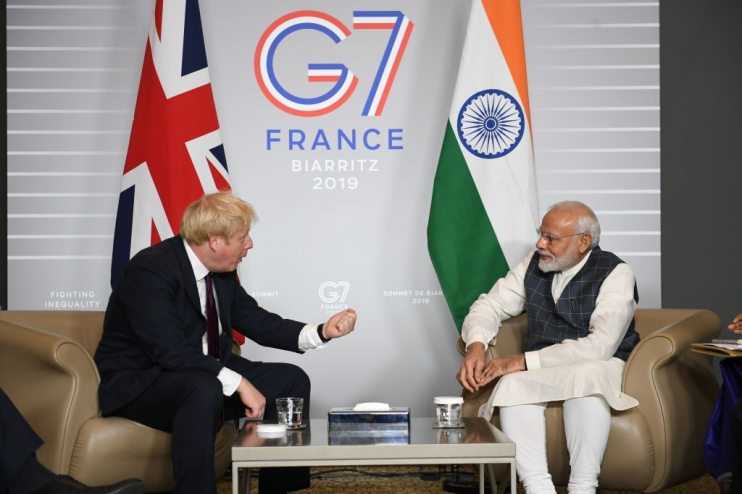Exclusive: UK eyes quick ‘interim’ trade deal with India as negotiations set to start this year

The UK government is looking at wrapping up a quick “interim” trade deal with India, which could see tariffs slashed on products like Scotch whisky before a full agreement is in place.
The Department for International Trade (DIT) is looking to start formal negotiations with India before the end of this year, after an initial consultation period finishes in two weeks’ time.
Department sources told City A.M. that the UK will try to strike an interim agreement, which would allow for freer trade between the two countries, under the terms of an historic World Trade Organisation (WTO) charter.
A source close to international trade secretary Liz Truss said if both sides can see “quick wins” in negotiations that an interim agreement could be closed to soon slash tariffs on British exports.
One of the UK’s main asks for this is on Scotch whisky, which India currently hits with 150 per cent tariffs.
The high levels of taxation mean just 2 per cent of the 50m bottles of whisky sold in India each year come from the UK.
“It could be a win-win, because we could sell more whisky and they could create jobs by being able to bottle more of our whisky domestically,” the DIT source said.
“Scotch whisky still maintains its [geographical indication] status if its produced here and bottled there.”
Scotch Whisky Association, an industry lobby group, chief executive Karen Betts said “a phased reduction in the import tariff would unlock well over £1bn of export growth for Scotch Whisky over the first five years.”
“This would be a significant boost for the industry and an early success for the UK government in its trade talks with India,” she said.
It has been suggested that Indian producers of things like rice could get greater access to the UK market under an interim deal.
Other issues like legal and financial services provisions and visa arrangements will also be key in negotiations, but will take longer to iron out.
India has been very reluctant under Prime Minister Narendra Modi to sign international trade deals, with the country’s last agreement inked 10 years ago.
As India’s economy has grown into the sixth biggest in the world, it has also become far more protectionist under Modi’s watch.
However, some have claimed the country’s recent willingness to open fresh trade negotiations may signal a change in attitude from Modi’s government in response to a stalling economy.
The UK and Indian governments have said they want to boost bilateral trade from the £29bn it was in 2019 to £58bn in 2030.
Dr Gareth Price, Asia Pacific expert at the Chatham House think tank, said “in the past few months there does seem to be a shift within India”.
“I presume India’s economy before Covid was in a poor state, that Covid has exacerbated this and there’s now been a shift toward trade talks with the EU and UK,” he said.
However, Price said one of the key stumbling blocks in previous unsuccessful EU-India trade deal talks was the status of Scotch whisky.
The UK wanted tariffs on its product slashed, however India’s strong alcohol producers’ lobby fought against the change.
“The alcohol lobby in India is very powerful and they don’t want competition,” Price said.
“They have monopoly licenses to sell alcohol, which makes people rich and politically powerful.”
A Department for International Trade spokesperson said: “With bilateral trade valued at £23bn in 2019, a trade deal with India will help boost British exports through lower tariffs and increased investment opportunities, supporting jobs and livelihoods in both countries.
“We are currently in the pre-negotiation scoping phase of an FTA, with the aim of starting negotiations later this year.”